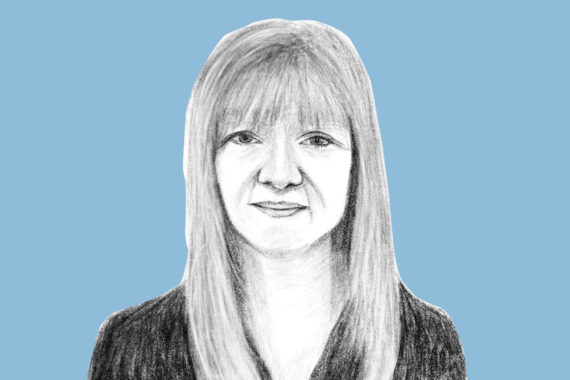Pharmacy second, corporates first?

Columnist Dr Zoe Rog shares her frustration about the new Pharmacy First scheme and argues that the funding could have been better used in general practice
I recently went to my local community pharmacy to collect a prescription for a family member. The staff member I spoke to explained that the pharmacist was giving flu vaccines and would be a few minutes.
Other people were already waiting for prescriptions to be dispensed, and two further people came in behind me with flu vaccine appointments who were also asked to wait. Then a lady came in and asked to see the pharmacist for advice about her eye. She expressed irritation when told the pharmacist was giving vaccines, and demanded to know if she would be able to speak to her as soon as she had finished.
The pharmacy is small, with no real provision for confidentiality, and the space in which vaccines are given is a large cupboard in the corner of the shop. I felt sorry for the pharmacist when she finally emerged. The lady with the sore eye was rude to her, and the other customers became increasingly impatient.
I grew up as a child of community pharmacists; my parents owned and worked in two community pharmacies. The threat of the big companies who owned chains of pharmacies and their bulk buying power and influence was a frequent conversation at our dinner table. The independent pharmacies that were our family business for years no longer exist today. A pharmacy market review conducted in 2022 showed that 40% are under corporate or supermarket ownership with far fewer being independent.
Possibly influenced by my upbringing, I have always been a big advocate for the value of the skills of pharmacists in primary care, and I love working with the clinical pharmacists we employ in our practice who add tremendous quality to our clinical care, and educate me on a daily basis.
However, the current scheme involving blood pressure checks in community pharmacies is not working at all well for our patients, or for us. It has led to a steady stream of anxious patients sent to our reception desk worrying about their blood pressure, most of whom when reassured and asked to sit down for a few minutes have considerably lower blood pressure on our second check.
I am aware of two patients recently who – despite reassurance, explanation and being lent a home blood pressure monitor to do further readings for us – have attended A&E worried that if something urgent is not done, then they might have a stroke. I dread the implications of the Pharmacy First scheme, because like many other GPs, I fear widespread inappropriate antibiotic prescribing and missed cases of sepsis with the consequences of this falling back on to us.
I am aware, too, of the anger in our GP community about the payments to pharmacies that have been negotiated for these schemes, and I share the frustration that we could have used this money better in our practices. However, when I looked at the list of Community Pharmacy England members, it came as no surprise that they have achieved a good deal. All the big companies and corporations are represented.
But I don’t envy the job of the frontline pharmacists they employ nor our patients trying to navigate the increasingly complex primary healthcare system. We are all pinballs in the machine, rushing around chaotically and watching the clever players win the jackpot.
Dr Zoe Rog is a GP in Runcorn, Cheshire
Pulse July survey
Take our July 2025 survey to potentially win £1.000 worth of tokens












